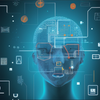2024 Лучшие бесплатные Deepnude AI: AI обнаженные
Ниже представлен список лучших AI-приложений для создания ню, которые стоит проверить!

In the ever-evolving landscape of higher education, the role of artificial intelligence (AI) is expanding rapidly. From Sweden to Australia and beyond, universities are grappling with the potential benefits and pitfalls of incorporating generative AI tools like ChatGPT into their academic environments. Launched by Microsoft-backed OpenAI, ChatGPT has swiftly become the world's fastest-growing application, igniting a race among tech giants like Google. These GenAI tools harness the power of language and data patterns to create content ranging from essays to videos, raising the possibility of transformative change across multiple academic disciplines.
AI's introduction into academia has sparked a profound debate. On one hand, educators envision AI as a valuable tool for tailoring course materials to individual student needs, akin to a personalized tutor. Leif Kari, the Vice President for Education at Stockholm-based KTH Royal Institute of Technology, believes AI can significantly benefit students.
However, concerns loom on the horizon. Some educators draw parallels between AI's integration and the introduction of hand-held calculators in classrooms decades ago. While calculators initially sparked concerns about cheating and the erosion of foundational skills, they were ultimately embraced as indispensable learning aids.
Similarly, AI raises concerns about students relying on it for their work, potentially leading to academic dishonesty. The issue of AI-generated content being passed off as original work also raises copyright and ethical questions, prompting some to question whether AI should have a place in academia.
Navigating the AI Dilemma
Universities, like Lund University in Sweden, are cautious about imposing outright bans on AI usage, recognizing the complexities of enforcement. They are shifting the focus from policing to fostering a learning environment that encourages responsible AI usage. Detecting AI-generated content has become a priority, with tools like Turnitin introducing AI-powered plagiarism checks.
According to Turnitin data, only a small percentage of students have used AI extensively for their submissions, with the majority not relying on AI at all. Nonetheless, challenges arise when AI detection mistakenly flags human-generated content as AI-generated, though students can defend themselves by maintaining drafts of their work.
AI's Current Limitations
Students experimenting with AI often report mixed results. AI can provide basic summarizations but falls short when it comes to distinguishing fact from fiction or right from wrong. Its knowledge is limited to information available on the internet, which can prove inadequate for specific academic inquiries. Sophie Constant, a law student at the University of Oxford, observes that AI has a long way to go before becoming genuinely useful in academia.
Global Guidelines and Regulatory Efforts
To address the growing influence of AI in education and academic research, UNESCO has released global guidance on GenAI. This guidance outlines steps for national regulators, including data protection measures and revisions to copyright laws. It also emphasizes the importance of equipping teachers with AI skills.
At the regulatory level, the European Union (EU) is taking a lead with draft legislation that could be applied to AI in education. Britain, post-EU exit, is also working on AI guidelines for education. Singapore is at the forefront of teacher training in AI, reflecting the global effort to incorporate AI responsibly into educational practices.
Conclusion: Embracing AI as Educators of the Future
The AI revolution in academia presents both opportunities and challenges. While it may reshape the learning experience and enhance student engagement, concerns about academic integrity and unequal access persist. Educators and institutions must find a balanced approach, leveraging AI as a powerful tool while ensuring ethical usage. In an ever-changing world, AI in academia is not just a trend but a transformative force that educators and students alike must adapt to and navigate responsibly. As Kirsten Rulf, a partner at Boston Consulting Group, aptly puts it, we are the last generation to have lived in a world without GenAI, and its influence is only set to grow.